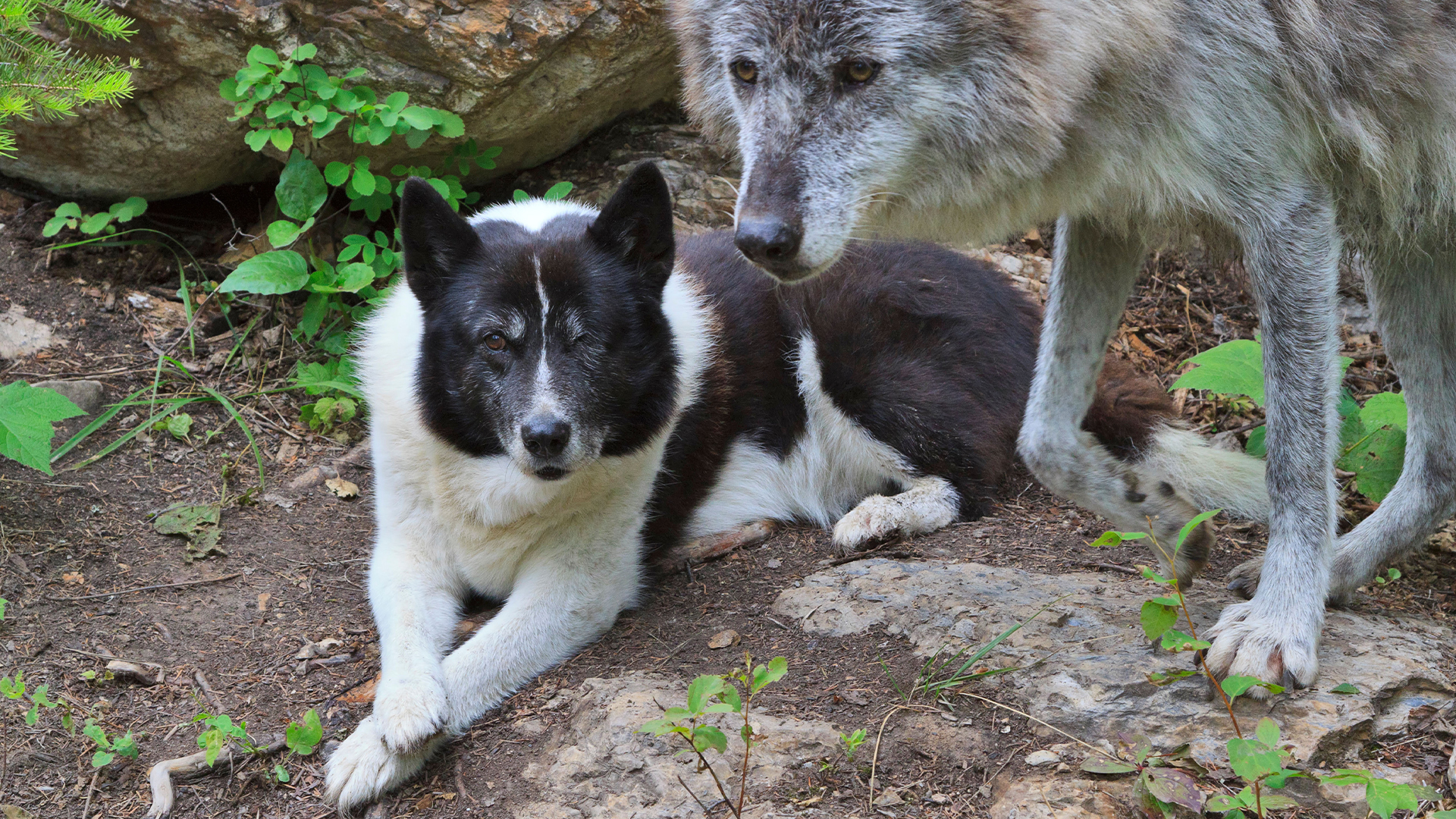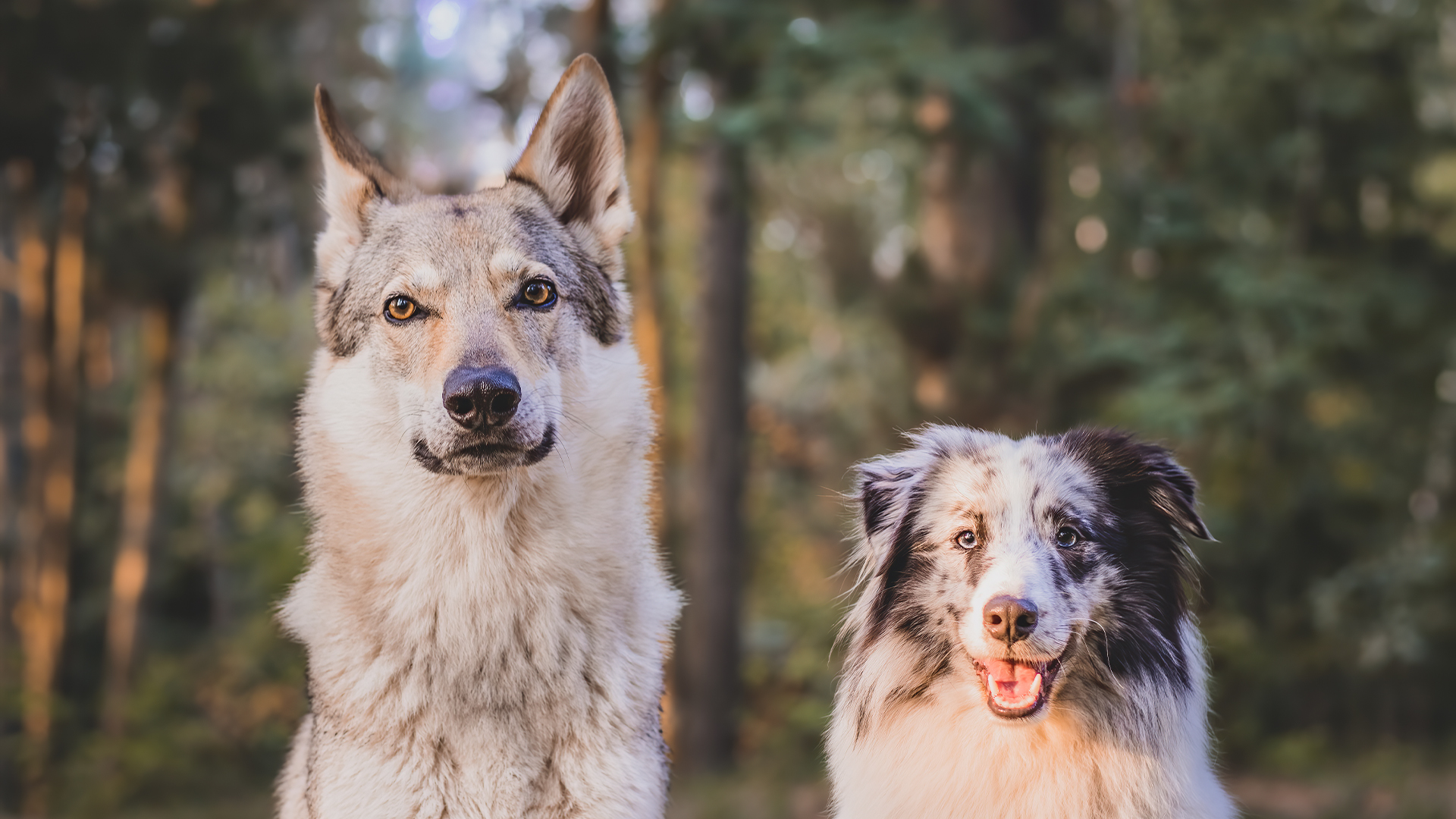Are dogs smarter than wolves?
Dogs evolved from wolves, but is one smarter than the other?

Get the world’s most fascinating discoveries delivered straight to your inbox.
You are now subscribed
Your newsletter sign-up was successful
Want to add more newsletters?

Delivered Daily
Daily Newsletter
Sign up for the latest discoveries, groundbreaking research and fascinating breakthroughs that impact you and the wider world direct to your inbox.

Once a week
Life's Little Mysteries
Feed your curiosity with an exclusive mystery every week, solved with science and delivered direct to your inbox before it's seen anywhere else.

Once a week
How It Works
Sign up to our free science & technology newsletter for your weekly fix of fascinating articles, quick quizzes, amazing images, and more

Delivered daily
Space.com Newsletter
Breaking space news, the latest updates on rocket launches, skywatching events and more!

Once a month
Watch This Space
Sign up to our monthly entertainment newsletter to keep up with all our coverage of the latest sci-fi and space movies, tv shows, games and books.

Once a week
Night Sky This Week
Discover this week's must-see night sky events, moon phases, and stunning astrophotos. Sign up for our skywatching newsletter and explore the universe with us!
Join the club
Get full access to premium articles, exclusive features and a growing list of member rewards.
At least 15,000 years ago, dogs evolved from groups of gray wolves, leading theories suggest. But does that mean modern-day pooches are smarter than their canine ancestors?
According to experts, the answer is no. But that doesn't mean wolves are smarter than dogs, either.
"You would never say dogs or wolves [are smarter] because we would always say they are both adapted to their environment," Juliane Bräuer, an associate researcher at the Max Planck Institute for Human Development in Germany, told Live Science.
Animal cognition is measured by a range of skills that typically fall into two categories: social cognition, or the skills an individual has with other animals, and nonsocial cognition, or how animals process and manipulate the physical world around them. Wolves and dogs have different cognitive skills that suit their specific lifestyles, according to Bräuer.
"You should just consider those cognitive skills separately," she said. "I always compare this [to] subjects in school."
Related: Do wolves wag their tails?
One of the most common experiments used to measure cognition in dogs and wolves is the pointing test. In a 2021 study, researchers put two cups upside down on a table, with food hidden under one of them. Then, they tasked 44 puppies with finding the food by giving them cues, such as pointing or gazing at the cup or placing a block next to it. After repeating the exercise with 28 wolf pups, the team found that the dogs were twice as likely to find the food as their canine cousins were.
Get the world’s most fascinating discoveries delivered straight to your inbox.
This shows that "there does seem to be something that's more innate about dog cognition that primes them to be able to understand these kinds of pointing tasks and understand the intention behind people's gestures," Hannah Salomons, a postdoctoral evolutionary anthropologist at Duke University and a co-author of the study, told Live Science.
In a 2017 study, a different group of researchers, including Bräuer, set up an experiment in which they shook a cup with food in it. Both the dogs and the wolves identified the cup with the food. But when the researchers shook an empty cup, the wolves stayed put, while the dogs still went for it. This suggests that wolves have a better understanding of cause and effect than dogs do, Bräuer said.
"The wolves are adapted to their environment [and] to the forest where they have to hunt," she said. "They are responsible for their food; they don't get it just by humans. And so it's very adaptive for them to understand something about causality, which they showed in that study."
These are just a few of many tests to measure cognitive skills in wolves and dogs, according to Friederike Range, an animal researcher and founder of the Wolf Science Center in Vienna. At this center, researchers frequently test social and physical skills in dogs and wolves. They have found that overall, wolves are more adept at working with each other, while dogs are typically better at performing tasks with humans because "for dogs, domestication brought a very different picture," Range told Live Science. "They're not so dependent anymore on cooperation with each other."
In any case, these tests aren't used to rank whether dogs are smarter than wolves but rather to better understand the various ways they navigate the world, experts say.
"It's not really meaningful, I guess, to try to rank intelligence, because even within humans, it's hard to define," Salomons said. "It would be hard for us to say, 'Oh, who was smarter, Van Gogh or Einstein,' right? There's just totally different skill sets that those people had. And just the same thing with animals."

Kiley Price is a former Live Science staff writer based in New York City. Her work has appeared in National Geographic, Slate, Mongabay and more. She holds a bachelor's degree from Wake Forest University, where she studied biology and journalism, and has a master's degree from New York University's Science, Health and Environmental Reporting Program.
 Live Science Plus
Live Science Plus












